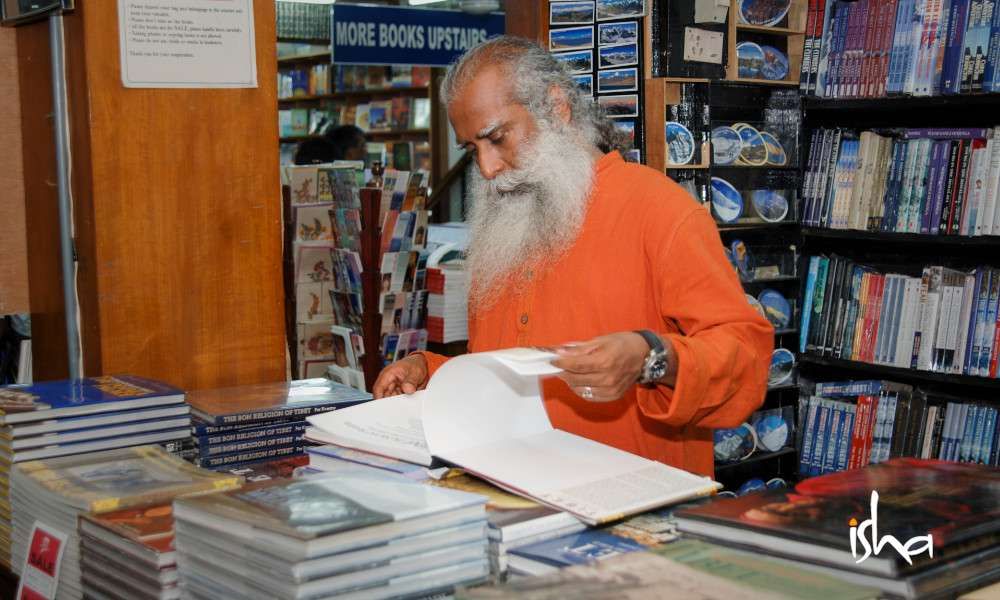What Books Did Sadhguru Read as a Kid?
Sadhguru shares about childhood books that left him lost at sea and the books that led to his Russian construction.

Childhood, Lost at Sea
One of the first books I read, I think in third standard, was 20,000 Leagues Under the Sea by Jules Verne. He exaggerated everything. He imagined such a big octopus which would come and attack their submarine. There is no such octopus in the world. It freaked my imagination. I wanted to go to the sea and see these octopuses and whatever else. I think for almost six to eight months these octopuses crawled through my brains. The next big book that grabbed my imagination was Gulliver’s Travels. When you are seven or eight, you are a Lilliput in the world – everybody is taller than you. I could think like them and feel like them, but they always thought I am a Lilliput. So I wanted to go to that island and meet those really little people.
These sea-going books somehow fascinated me, like Robinson Crusoe. When we were in ninth standard, my friends and I wanted to build a boat and sail away to Tahiti. We even studied the ocean currents – how to go and which season to take off. But we never went. In high school, one book I read was Jonathan Livingston Seagull by Richard Bach. I also read his Illusions many times. Moby-Dick by Herman Melville was about a whale, again the sea.
Subscribe
Russian Construction
There are some books which could change the very way you think and feel about life. For many people, books have been a turning point. I have read almost all the books of Tolstoy, although I never completed Anna Karenina; it was going on endlessly. Well, way back, I read Dostoevsky, Camus and Kafka. I was so impressed by their intellect, but at one point, I suddenly saw that though these people were brilliant, there was a psychological factor which is unnecessary – a certain morbidity about everything and celebrating suffering in so many ways.
In those days there was something called as “Nava Karnataka” book stalls. They were selling mainly Russian books. You could get big literature books like Leo Tolstoy’s War and Peace for two rupees and engineering books for one or two rupees – all hard-bound books. I bought a bunch of Russian civil engineering books. I bought books about water treatment plants, sat down on my farm and pored through this day and night. I spent two to three months on it. After reading, I wanted to have a go at construction. I went for a certain industry which required a water treatment plant and asked for the tender. The owner looked at this and said, “You are funny. You are not going to do this. No way can you do it. The nearest tender is thirty-two lakhs and you are saying one-point-seven-six lakhs. How will you do it?”
I said, “Give me one more day.” I went back and again pored through the books. I returned and said, “‘I will do it.”
Then he said, “You have ninety days. You must finish this and it must work. If it doesn’t work, at your own cost you must remove it, clean the site and go, and I will not give you a rupee in advance.”
I completed this in a little over seventy days with a cost of ninety plus thousand rupees. In one shot I made eighty thousand rupees just like that. Like this my enterprise started and we grew into a major construction company. We were going very big, but then I got enlightened. So I gave up!
Editor’s Note: The New York Times Bestseller book, “Inner Engineering: A Yogi’s Guide to Joy,” by Sadhguru is a guide to self-empowerment that relies on the teaching and principles of classical yoga to help readers create an enduring foundation for inner stability and peace. Order your copy now on Amazon.


